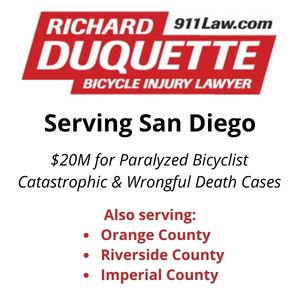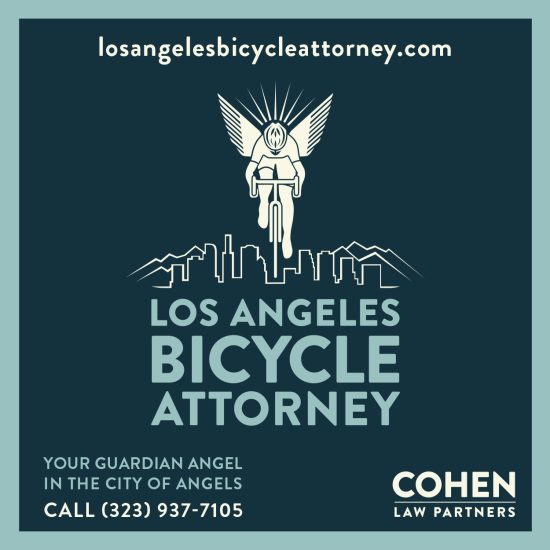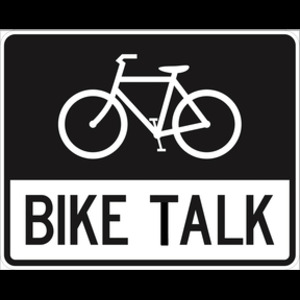Things had been going so well.
Just this last February, Chief Beck and Asst. Chief Paysinger came to a meeting of the City Council Transportation Committee to speak — and more importantly, listen — to cyclists. A meeting where the Chief got an earful, and responded by saying “We will do better for you.”
“Don’t listen to what I say,” Chief Beck said, “but watch what I do.”
That was followed by the formation and growth of the LAPD’s Bike Task Force, from a group that included a relative handful of cyclists to one that now includes representatives from the BAC, Bikeside, LACBC, the East Side Bike Club, among others, as well as yours truly.
The result has been, or at least seemed to be, a new era in the department’s relationship with the bicyclists who ride its streets.
There was even a new training video that went out to patrol officers throughout the city that clearly explained the rights and responsibilities of cyclists, which has been seen by roughly two-thirds of the city’s police force so far.
Maybe that’s the problem.
If two-thirds of the of department’s 9,000 plus officers have completed the training, that means somewhere around 3,000 haven’t.
Maybe they were the ones patrolling the streets of Hollywood Friday night, when officers are accused of violently assaulting cyclists — and violating the first amendment rights of a rider who tried to record the night’s events — in the LAPD’s Critical Mass Takedown.
Maybe they’d seen the training, but their supervisors who ordered the massively inappropriate response hadn’t — including the Watch Commander who allegedly hung up on Stephen Box not once, not twice, but four times when he attempted to report the alleged abuse. Just a bad connection, I’m sure.
Or maybe it just takes a long damn time to change the attitudes and actions of an organization as large and entrenched in their own way of doing things as the LAPD.
As many others have noted over the past several days, the infractions for which the cyclists were stopped were simple traffic violations, like running a red light and failure to have lights and reflectors at night. And the police were well within their authority to write-up every legitimate violation that occurred during the ride.
Whether they had the capability to do so is another matter. As is the wisdom of attempting it in the first place — let alone use of force for a simple traffic violation.
Or do they make a habit of violently forcing motorists off the road for running a red light, and routinely taking down and cuffing drivers caught with a broken brake light?
According to the LACBC, Asst. Chief Paysinger has personally ordered an investigation into the matter. And as I write this, cyclists are confronting representatives of the LAPD at tonight’s meeting of the Bike Advisory Committee.
But the problem goes beyond the actions of a few out-of-control — or possibly overwhelmed — officers. Or any single division, for that matter.
The LAPD has to find a way to deal with large groups of cyclists that doesn’t involve driving patrol cars into packs of riders, herding them into dangerous situations or risking serious injury by knocking cyclists off their bikes.
Other cities have found ways to accommodate Critical Mass and other large, unofficial group rides without violence or aggressive, antagonistic responses. As the LACBC’s blog points out, rather than trying to halt their CM, Chicago smartly assigns bike officers to ride along with it, going so far as to allow officers to block intersections and cork uncooperative drivers.
If the result of this investigation is the disciplining of a handful of officers, the department will have failed once again. What’s needed is new policies that will prevent this kind of violent, heavy-handed overreaction from ever happening again.
Not to mention official, department-wide recognition that every citizen of the United States has a first amendment right to record the actions of officers on the street, without fear of interference or retaliation.
It’s time for real action that results in new policies on the streets. And a new, more effective relationship that demonstrates real respect for riders and concern for their safety, even when stopping them for whatever reason.
This should never have happened. But since it did, it’s up to the LAPD to ensure it never happens again.
We’re watching now, Chief.
………
Writing for Eco Village, Joe Linton says that the police only have to look at the streets around them to see how little respect riders get in Los Angeles. And suggests that the city could easily do something about that by moving forward with a number of inexpensive, previously approved projects — some dating back to 1996 — that could transform cycling in L.A. virtually overnight.
………
Four years later, Operación Puerto catches up to #1 ranked pro cyclist Alejandro Valverde in the form of a two-year suspension; interesting that the hundreds of non-cycling professional athletes implicated in the scandal have yet to face any serious repercussions. Meanwhile, Swiss star Fabian Cancellara denies rumors that he used a tiny engine hidden inside his bike to win two major races earlier this year.
………
At least some officials in San Diego understand that widening the freeway is only a short-term solution to traffic congestion; I’m still waiting for someone to figure that out up here. Imagine what L.A. could due with the $450 million currently being spent to widen a few miles of the 405 to relieve congestion for just a few years.
………
LADOT #2 John Fisher — who has previously been accused of treating local bicycling that way, too — talks traffic, bikes and pedestrians with The Atlantic; the comments on Streetsblog’s coverage are worth the read. Creek Freak says don’t tear down the historic Spring Street Bridge for cyclists’ sake. More on last week’s Caltrans 7 Bicycle Advisory Committee meeting. A Cycle Chic Sunday in Santa Monica. Brand X reports that the Department of DIY isn’t just limited to the bike world. San Jose is the latest city to host a ciclovia. A cyclist gets brushed by a passing truck, resulting in a parking lot altercation that ends with two riders stabbed and the driver behind bars. A Florida bike cop explains bike safety. Bystanders lift a car off an injured cyclist; although what his helmet has to do why he got hit is beyond me. Chicago turns Lake Shore Drive over to bikes for a day, or five hours, anyway. Can drivers and cyclists co-exist in the City of Brotherly Love? An Indiana legislator proposes strengthening the laws protecting cyclists; the commenters demonstrate how little they understand bicycling, or spelling for that matter. Efforts are underway to make the federal government more bike friendly; who wants to bet the feds get there before L.A. does? Bob Mionske links to the executive summary of the inexplicable dropping of charges against the former Ontario Attorney General who killed bike messenger Darcy Allan Sheppard. One-third of Canadian parents aren’t worried that their children will be injured while biking; is that good news or bad news? A bike advocate looks at tensions between drivers and bicyclists in BC. Britain’s new Transportation Minister dashes the hopes of cyclists, saying the “war on motorists” must end — and suggests that riders are responsible for their own safety. A London bike advocacy group proposes solutions to online fencing of stolen bikes. Video evidence of a fatally substandard bike lane. This year’s Tour of Ireland is cancelled due to funding issues.
Finally, thanks to the Trickster for tipping us to the story of Kiwi bus drivers who took to two wheels to understand what it feels like to share the road with a 12 ton bus.
Any time Metro — or any other local bus operators — want to try that here, just drop me a line.






[…] the network: The Dead Horse Times on the importance of population projections to planning efforts. Biking in LA on a setback in relations between Los Angeles bicyclists and the LAPD. And the Virginia Bicycling […]
You don’t have to look as far as Chicago for that kind of policy on Critical Mass – what you described sounds exactly like San Francisco’s, and it’s great.
I’ve ridden a bicycle in many many cities including the bicycle rich Netherlands where I discovered to my surprise that group rides are practically non-existent. Why? “we already ride everywhere everyday, what’s the point of riding more?” In other words, LAPD and LADOT… Normalize and support cycling as a viable mode of transportation in Los Angeles, and the group rides will melt away.
That’s right, I, one of the founding members of Midnight Ridazz, am advocating for a pragmatic solution to your dilemma LAPD and Los Angeles… a trade of sorts…. You give us a place on the road, infrastructure, protections and due process… and you will see the group rides end. That’s a promise. You have a lot of work to do. And we have a lot of riding to do.
Exactly, I think that’s the main point of Critical Mass. There would be no point in it if the streets were already welcoming and safe for people on bikes.
Question: you think all group rides will end or just large group rides like Critical Mass? I find it hard to imagine that, considering my love of riding, I wouldn’t want to ever share that with a group of friends again, infrastructure or no. But I think you mean “planned” rides of large quantities would end, yes?
You would still have groups that ride PCH and other routes to train together, etc.
Sorry, forgot to click “reply” – so my response is below.
Considering the established recreational biking culture in LA and the U.S. over, I suppose group rides like those would stay, but no, I don’t think there would be any large “planned” rides to promote bikes’ place on the road or to feel empowerment from strength in numbers.
I’m currently studying in Denmark, and here bikes are really thought of transportation, period. So what you said about the Netherlands seems true here, too. If anyone is riding in a “group” together, it seems it’s for the main purpose of getting somewhere.
“Or do they make a habit of violently forcing motorists off the road for running a red light, and routinely taking down and cuffing drivers caught with a broken brake light?”
If the motorist fails to stop for the police the answer is yes, yes the do. In fact, they will chase that motorist down and force them off the road with a Pitt maneuver. That would then be followed with possibly pulling them out of the vehicle or if they leave the vehicle willingly, laying down on the ground and getting cuffed is fairly certain.
[…] to show the reader where Fisher is on the org chart. Rogers, who has a car and sometimes drives, wrote about the May 28th Critical Mass beatdown “as I write this, cyclists are confronting representatives of the LAPD at tonight’s meeting […]